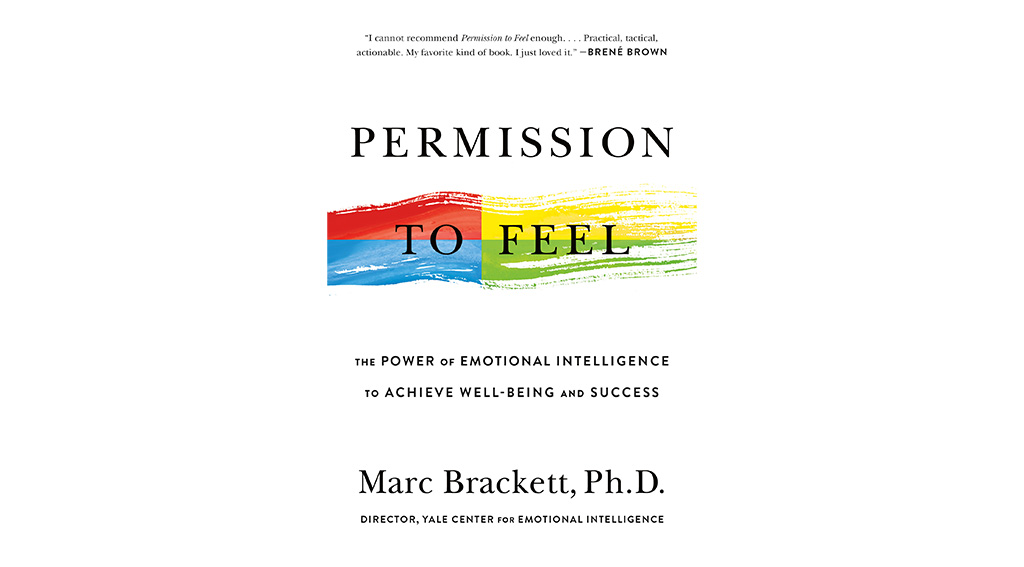
"How are you feeling?" is a question that arises many times in Permission to Feel: The Power of Emotional Intelligence to Achieve Well-Being and Success, by Marc Brackett. However, Brackett puts a new twist on this emotional question. The director of the Yale Center for Emotional Intelligence, Brackett proposes that if we can “learn to identify, express, and harness our feelings, even the most challenging ones, we can use those emotions to help us create positive, satisfying lives.” He believes there is a science to understanding emotion and that there are five skills needed to be what he calls an “emotion scientist.” Brackett truly achieves his purpose of showing the importance and necessity of defining and understanding emotions and then, in turn, creating a positive outcome through many explanations, tips, tricks, and examples.
Brackett divides his book into three parts, with an introduction on allowing the permission to feel, a second part explaining the five skills needed to become an “emotion scientist,” and a final part where these five skills are put into action by applying them at home, at school, and at work. Brackett uses the acronym RULER to explain the skills—recognizing emotion, understanding emotion, labeling emotion, expressing emotion, and regulating emotion. He gives examples of why each one is important, along with suggestions on how to learn and grow within each category.
The most important part of the book comes in the third section. Here, Brackett explains the importance of using the RULER skills for optimum success in various settings. He says that a “focus on emotion skills is about real, practical skills,” and goes on to give real-life examples of how to put these skills into action.
Brackett makes a point to explain his personal story and the reason behind his emphasis on teaching emotional intelligence. He shares stories of bullying and the lack of adult interaction and it being OK to feel a variety of relative emotions. His real-life story, combined with other real-life examples, provides an effective illustration of the importance of emotional intelligence and learning the skills necessary to become an emotion scientist.
The strength of this book lies in the many examples and tools that Brackett provides so that each reader can not only learn about the importance of allowing people to feel, but also learn the skills needed to do so. Brackett takes time to explain how to apply the RULER skills at all age levels and in various settings within one’s life. Brackett does not hold back on the honesty of what allowing, or not allowing, the permission to feel can do to a person, and he always has the facts and research to back up what he is sharing.
Jodie Rowe (jmrowe@coastal.edu) is a doctoral candidate at Coastal Carolina University.

Share this content